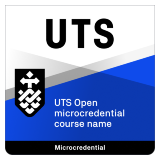The following content will be covered in this microcredential:
Module 1: Introduction to statistical process control
- Introduction to statistical process control as cornerstone for quality planning in industrial organisations
- Definition of quality including quality requirements and cost
Module 2: Process variability
- Understanding and decision making around process variability
- Process capability and key statistics
- Interpreting capability indices
Module 3: Process control
- Key elements to design a control system
- Control charts and control limits
Module 4: Statistical process control and charts
- Mean and range charts, charts for individuals
- Median, mid-range and multi-varied charts
- Moving mean, moving range and exponentially weighted moving average (EWMA) charts
Module 5: Statistical Process Control and Charts for Standard Deviation
- Statistical process control and charts for standard deviation
- Process control by attributes (np charts and p-charts, c-charts, u-charts)
- The use of control chart and process capability data.
















